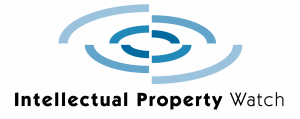 Monika Ermert, IP-Watch, Link (CC-BY-NC-SA)
Monika Ermert, IP-Watch, Link (CC-BY-NC-SA)
The European Parliament today with over 600 votes adopted the legal instruments to ratify the Marrakesh Treaty on access to reading material for the visually impaired. The treaty, adopted by the members of the World Intellectual Property Organization in 2013 and effective since last year, has been subject of controversies due to lobbying from publishers in the European Union, members of Parliament said today in Strasbourg before the vote. EU member states after today’s vote have one year to implement.
Rapporteur Max Andersson (Green Party) welcomed the “deal” struck between the governments in the EU Council, the Commission and the Parliament in May of this year. While exceptions for the blind exist already in some member states, the treaty and its implementation in EU law “removes the legal barriers that prevent librarians and organisations that keep them from sending accessible copies across borders,” Andersson underlined.
The documents from today are available here. The Marrakesh Treaty to Facilitate Access to Published Works for Persons Who Are Blind, Visually Impaired or Otherwise Print Disabled is available here.
The now-passed EU regulation lays down the cross-border exchange with third countries according to the Marrakesh Treaty, and includes an EU directive focuses on harmonising the exception to make accessible copies without rights owners’ consent in the EU. The vote total for the regulation was 610 yes to 21 no with one abstention; and for the directive 609 yes to 22 no with one abstention.
Commenting on the considerable delay for ratification of the instruments, Andersson said, that “not all were happy” and publishers “were afraid to lose money.”
The answer to publishers’ concerns are contained in a legal option that member states can use when implementing the new instruments allowing them to include compensatory remuneration for publishers.
While Christos Styrianides, EU Commissioner for Humanitarian Aid and Crisis Management, said, “I welcome the fact that the outcome of the negotiation ensures transparency and keeps complications when it comes to compensation schemes to a minimum,” the European Blind Union (EBU) expressed frustration.
“We consider this in contradiction with the right-to-read objectives of the Marrakesh Treaty,” EBU President Wolfgang Angermann said in press conference yesterday. Angermann explained that much investment already went into the creation of accessible copies.
“Columnized layouts, graphs, pictures, animated balloons and all other means to attract optic attention, until now cannot be made accessible to blind persons without extensive knowledge, phantasy, and experience,” he said. “There is no technical tool available to replace these indispensable human resources. It is the non-profit companies with these special services for blind consumers in the respective country that provide these skills.”
Angermann told Intellectual Property Watch that the non-profits relied on donor funding and it was not in the interest of those donors to spend money on compensation of publishers instead of creating more books. Currently only about 5 percent of titles published worldwide are available in accessible formats, in developing countries the figure is closer to one percent or below.
The EBU also announced that “in the transposition of these EU laws into EU member state legislation we shall oppose this unfair application of payment schemes. They are falsely called ‘compensation schemes’ because there is no economic loss to be compensated and governments never have shown any damage done to publishers by accessible formatted works.”
The EBU already picked its test case to challenge the compensation schemes in practice, according EBU expert David Hammerstein: German copyright legislation.
The German legislation since 2003 includes an exception for blind people and a compensatory scheme for publishers. Angermann said that the organisation views the German legislation as a violation of the UN Convention for the Rights of Persons with Disabilities, which in Article 21 obliges signatories to “providing information intended for the general public to persons with disabilities in accessible formats and technologies appropriate to different kinds of disabilities in a timely matter without additional cost.”
In written questions to the EU Commission, the EBU next week will challenge the compliance of Article 45a of German copyright law with EU Copyright Directive (29/2001). The Copyright Directive includes a recital banning “economic compensation unless ‚more than minimal damage to rights holders is proven’.”
Germany has been one of the member states that have tried to delay the ratification of the Marrakesh Treaty by challenging the EU Commission‘s competency to ratify on behalf of the Union. While the European Court has affirmed that competency, steps to ratification still are under discussion.




